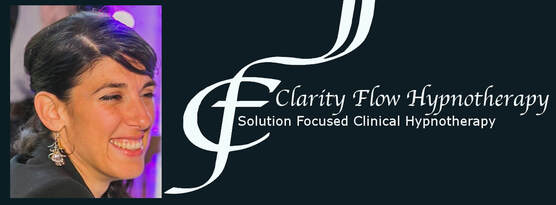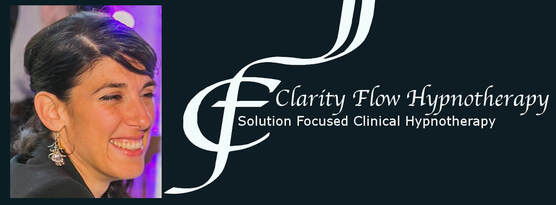|
With the New Year’s festivities behind us, we can now start to sharpen the focus on what we want to create for ourselves and how we want to move forward.
Here are some questions to kick-start you into your thinking and planing. First of all, have you started to refocus on your priorities? If not, have a think and start writing things down and brainstorming. If you’ve done that, do you have a clear roadmap to make things happen? If not, draw out your plan - think of it as your guide for yourself. And if you’ve got a plan, do you have things in place to make sure you stick to your plans and keep up the momentum so you continue to see progress for months to come? (Because to make things happen we need focus and consistency). If the answer was no to any of these questions above, Have a think about what’s getting in your way. Do you need more structure, self-discipline, confidence, motivation, inspiration or to get the mental obstacles out the way so you can start making things happen? Pause now and have a think about what’s really in your way. Once you’ve done that, think; How can you improve on this situation? Can you make it happen by yourself? If so great, get started. If not, is this something you need help with? If so, do you have people in your life who can support you and give you a regular boost? If not, and if you feel you could really benefit from external support, have you looked into Solution-Focused Hypnotherapy? I’m not going to go into what solution-focused hypnotherapy is now, but I will say that it can help a lot with gaining more clarify, coming up with solutions and ideas, Transform anxiety into new energy and action, clearing and overcome obstacles that are interfering with you being your best, maintaining focus on your priorities, and very importantly, staying on track for weeks and months to come. And what all that translate to in your everyday life is, for example, that you: manage stress better, get less anxious, can change exercise or eating habits easier, are more confident, can ask for what you want or say ‘no’ easier and as a result ultimately feel happier with yourself, where you’re at, and the direction you’re taking yourself in… The bottom line is, when you choose to focus on your wellbeing and do regular mind-maintenance, you can really make good progress in making things happen, and with the added benefit of hypnotherapy and someone in your corner, you can enrich and accelerate this process even more. So by all means, go back through the first questions in this video to start your process of helping yourself already and look up other ways (there is so much useful information out there!). But if you feel it’s really now time for you to take the next step and really commit to your growth and wellbeing with regular one-to one sessions, I am happy to offer you a free initial consultation to give you insights into the working of our brains and how sessions with me, at Clarity Flow Hypnotherapy, could help propel you forwards in being at your best and making what you want happen for yourself. Maral Kojayan MA HPD Clinical Hypnotherapist www.clarityflowhypnotherapy.com TO BOOK A FREE CONSULTATION* FOR CLINICAL HYPNOTHERAPY CLICK HERE
0 Comments
Remember: If you are unhappy with where you’re at, you can’t keep doing the same thing and expect you’ll miraculously feel better.
“Insanity is doing the same thing over and over and expecting different results.” (often attributed to Einstein) Be honest with yourself and know that if you want different results: 1) change is needed 2) it’s up to you, no-one can do it for you. But you can have help, and you can ask for help. This can apply to so many things, like: habits and behaviours you don’t like (e.g. procrastination, perfectionism),or to do with how you are in relationships, or work related, it can be weight or eating related or about confidence… In any case, like it or not, want to or not, the way to get different results is to make changes! sometimes you know what needs to change, sometimes it’s trial and error or a series of little things. I’m spelling this out, because although it sound very logical, unfortunately when we’re down we’re often not engaging our highest faculties, we’re often stuck with our primitive mind in the driver’s seat and that part does not like change. maybe you recognise that part inside, the part that would rather suffer than face change. Recognising is a good first step, but action is needed, so figure out what you need to do differently and how. Look things up, ask for support from people around you or speak to a professional like myself (book your free consultation) who can guide and support you in making the changes you want to make. Maral Kojayan MA HPD Clinical Hypnotherapist www.clarityflowhypnotherapy.com TO BOOK A FREE CONSULTATION* FOR CLINICAL HYPNOTHERAPY CLICK HERE  Most people would not associate Hypnotherapy with Irritable Bowel Syndrome (IBS), or would at least wonder if and how Hypnotherapy could help a person suffering from Irritable Bowel Syndrome. This short article explains just how helpful Clinical Hypnotherapy has been found to be for people suffering from Irritable Bowel Syndrome. As a Clinical Hypnotherapist I see a large number of people struggling with all sorts of issues and conditions. IBS is just one of those and although it is a very real and physical problem, research has found that it can be influenced, often greatly, by psychological treatments, such as clinical hypnosis, not least because associated with IBS are many not physical conditions, such as anxiety, low moods, fears, lack of confidence and more... At Clarity Flow Hypnotherapy, we practice a modern neurosciences based Hypnotherapy, which means, we take the best evidence-based methods from talking therapies and combine it with the powerful benefits of hypnosis, to help people make practical positive changes and find ways to get the best out of themselves and life. What our Solution-Focused Hypnotherapy sessions do is aim both to help a person cope better, and work on reducing the symptoms of Irritable Bowel Syndrome. Before going any further about how Hypnotherapy can help IBS, let's first take a moment to understand what it is. What is Irritable Bowel Syndrome? One of the first things to understand about IBS is that there are no visible abnormality in the bowel and there is no diagnostic test for it. However, this is not to say that it's in the mind, because there are many real, uncomfortable (to very painful) physical symptoms, such as: cramping, abdominal pain, bloating, gas, diarrhoea/constipation or both or even nausea. Associated with IBS there is often anxiety, low moods, stress and worries, tiredness, poor sleep, fears and confidence issues. It is also very likely that a large part of these worries and anxieties are as a result of how the person suffering from IBS feels about their situation. They may be: Worried about going out and being too far from a bathroom. Embarrassed to go out with friends or eat out, in case they suddenly feel unwell. Anxious about what to eat and how much, so as not to have a flair up. Sometimes feeling hungry but worried about eating, just in case it causes them pain or discomfort. All of these physical and psychological conditions add up, making the symptoms worse and creating a vicious cycle that can make the situation very difficult for a person suffering from IBS. It is not surprising that the condition can have an effect on a person's work, productivity, relationships and sense of worth. How does Clinical Hypnotherapy help with IBS? According to Scientific research, Hypnotherapy is one of the most effective approaches for IBS. In most published research studies to date, the response rate to treatment is very high. In one large-scale study, with 1000 IBS patients, the positive response rate was 80% in the females and 76% overall for a study (Miller 2015). What is also worth acknowledging is that it often helps individuals who have failed to get improvements with other methods. You can imagine that most people who turn to hypnotherapy do so only after having exhausted the medical treatments available. This therefore means that hypnotherapy ends up proving helpful for even the chronic persistent cases of IBS, the difficult cases, the people who don't know where to turn to any more and start looking beyond what is most obvious. Dozens of clinical studies have been published showing Hypnotherapy significantly improves bowel symptoms and often the associated quality of life and emotional symptoms. For example in the study mentioned above of 1000 IBS patients, who received 12 hypnotherapy sessions over 3 months, both anxiety and depression were halved, as were the number of pain days reported. There are a list of other benefits to using hypnotherapy for IBS:
For all of these good reasons, Gut-Directed Hypnotherapy (GDH) comes highly recommended, from no less than The British National Institute for Health and Clinical Excellence (NICE). Nice recommends that, "People living with IBS who do not respond to pharmacological treatments after 12 months, [should] consider a referral for psychological interventions, such as Hypnotherapy.” Of course, a person suffering from abdominal or other health concerns should always consult their doctor first to rule out other diagnoses. However, as NICE recommends, if you've been suffering from IBS and would like to see how Hypnotherapy can help you, Clarity Flow Hypnotherapy offers a Free Initial Consultation* which is very easy to book. Simply click the link and choose your preferred time for a video meeting with Maral Kojayan, a qualified and experienced Clinical Hypnotherapist. During the 30-40 minute Initial Consultation, we will assess your needs, discuss how hypnotherapy can help you and answer any questions you may have. You will also learn more about how the brain works and already start to get some insights into understand what changes to make and how. So, if you feel you'd like to start hypnotherapy, feel free to book yourself in for the free consultation offer and we looks forward to helping you towards helping yourself to get more peace of mind, and body. Maral Kojayan MA HPD Clinical Hypnotherapist www.clarityflowhypnotherapy.com TO BOOK A FREE CONSULTATION* FOR CLINICAL HYPNOTHERAPY CLICK HERE *Only one Free Initial Consultation booking per client pending therapist's availability. You must have a genuine interest in starting Hypnotherapy. Hypnotherapy is a complementary therapy. A Clinical Hypnotherapist is not a medical professional. You should always consult with your physician/GP or a medical/mental health provider regarding your health concerns. Reference: V Miller, H R Carruthers, J Morris, S S Hasan, S Archbold, P J Whorwell. 2015. 'Hypnotherapy for irritable bowel syndrome: an audit of one thousand adult patients'. Aliment Pharmacol Ther.41(9):844-55. https://pubmed.ncbi.nlm.nih.gov/25736234/  Advantages of Solution Focused Hypnotherapy Hypnotherapy has so many benefits. It can help with a long list of problems from insomnia to anxiety related issues to confidence to fears and phobias, stress reduction, chronic pain, management of anger, other emotions and much more. The fact that it is so versatile and can help with so many different conditions, can be considered the first advantage of Solution Focused Hypnotherapy. “The Benefits of Hypnotherapy: How can it help you?” article looks at all the many things Hypnotherapy can help with and how. In this article we'll be looking at what makes Hypnotherapy—more specifically, Solution Focused Hypnotherapy—a good and worthwhile choice for so many people. No Unwanted Side Effects One of the best advantages of Solution Focused Hypnotherapy is that it's natural. Natural means no medication or even herbal tinctures are involved. As no medication is involved, there are non of the unwanted side effects that go with them. This is great news to all those people who (in consultation with their medical doctors) are trying to move away from medication or reduce their dosage. Solution Focused Hypnotherapy uses the natural process of trance state as well as some of the best tools from modern psychotherapy to empower individuals to create the changes they want to make in themselves and in their lives. Solution Focused Hypnotherapy does this in a couple of ways. It helps people move naturally into activating the parasympathetic nervous system, the system for rest and restoration which can often results in a natural boost that is often felt directly after a session. It also works with techniques that tap into the body's natural pharmacy. Regular sessions habituate engagement in positive activities which help towards stimulating the production of serotonin (the so called “happiness hormone”) dopamine (for motivation) endorphin (morphine-like pain inhibitor) and other 'feel-good' neurotransmitters. These neurotransmitters produce a healthy brain and body chemistry which support the body's systems in maintaining good health and coping better with life's challenges. Complementary Therapy Because of this, Hypnotherapy has been used in many hundreds of cases as an adjunct or complementary treatment, with positive results in hospital trials for accelerated wound healing, bone healing and for cancer care, as well as for IBS, migraines, insomnia, anxiety, weight-loss, and more studies outside of the hospital setting. So clearly, another great advantage of Hypnotherapy is that it's a complementary therapy. As such, Solution Focused Hypnotherapy does not attempt to be an alternative to the mainstream but rather works as an additional complement for the treatment of many conditions. It's worth mentioning that, unless specifically stated, a hypnotherapist is not a medical professional, so if you have a medical condition or are on any medication, it is always advisable to consult your doctor regarding your condition. Pleasant Process One of the nicest advantages of Solution Focused Hypnotherapy is that it's a pleasant process. The focus of this branch of Hypnotherapy is always positive, the hypnosis itself is through visualisation and relaxation, rather than drawing up or dwelling on unpleasant episodes, which is what some therapies have been doing a lot of for many decades now. Solution Focused Hypnotherapy is a modern psychotherapy, based on neuroscience and a scientific understanding of how the brain works. Neuroscience has reviled already that the brain cannot tell the difference between what you're thinking about and what is actually going on, it has also reviled a great many things about how we perceive reality, what neurotransmitters are responsible for etc. Solution Focused Hypnotherapy has taken on-board these and other discoveries into its therapy methods, to create a powerful yet pleasant therapeutic process. An Education Another very valuable advantage unique to Solution Focused Hypnotherapy is that it's not only a therapy but an education. During the process you have the benefit of learning a lot about how the brain works and how to maintain well-being in the most effective, efficient and lasting way based on this knowledge. In short, it teaches you how to be and stay as your best self without long-term support from the therapist. Very Accessible A little known super advantage of Solution Focused Hypnotherapy is that it can be, and often is, done online via Zoom, Skype or other video conferencing apps. People sometimes have false ideas about what Hypnotherapy is and what's possible with it. The fact is that Solution Focused Hypnotherapy is a neuroscience based branch of psychotherapy, as such the only thing that's necessary is to see and hear each other. This type of Hypnotherapy doesn't need physical contact or physical proximity. This makes Solution Focused Hypnotherapy a very conveniently accessible service for people. You can be anywhere in the world and still access a Solution Focused Hypnotherapist at Clarity Flow Hypnotherapy or other Solution Focused Hypnotherapy providers. You can even be in the same city as your therapist but choose to have sessions online which saves you time and money. Affordable This brings us to the last, but not least of the advantages, which is its affordability. There are two factors which make it affordable. The first is that online sessions save not only the client time and resources, but also save them for the therapist and these savings can be passed onto the client. The second factor that makes it affordable is that, unlike some therapies, services and activities people engage in, Hypnotherapy doesn't drag on indefinitely. It varies on the person and issue presented, but most people are able to resolve their problems within 12-15 sessions and do not need to revisit the therapist except if they choose to do a sort of periodic 'maintenance' because they find it enjoyable and empowering, but not out of necessity. So, as you can see there are many advantages to working with a Clinical Hypnotherapist, in short, it's natural, complimentary, pleasant, educational, accessible and affordable, so if you're at a point where you think you could benefit from some support, it's best to start sooner rather than later. Procrastination never solved anything, manageable small steps with support along the way often takes you a very long way, so don't hesitate to book a consultation, it's currently free at Clarity Flow Hypnotherapy. TO BOOK A FREE CONSULTATION FOR CLINICAL HYPNOTHERAPY CLICK HERE Maral Kojayan MA HPD Clinical Hypnotherapist www.clarityflowhypnotherapy.com  It’s now that time of the year when we sit down and think about New Year’s resolutions – from finding a healthier life balance to changing unwanted behaviours to weight management and avoiding those sneaky extra biscuits... If this sounds like you, and you have been craving to change something or stop doing something that has been bothering you for a while, or perhaps you are looking to try something new, something you had never thought of trying, then contact us for a free initial consultation, to see how Solution Focused Hypnotherapy can help you. Solution Focused Hypnotherapy works by looking forward, to see what small steps you can take to achieve the goals you are aiming at in life. In other words, what you can do to alter your future for the better. Crucially the therapy works without the need of looking back at past events (which can sometimes be upsetting and unnecessary). By working with a fully qualified and insured Solution Focused Hypnotherapy practitioner like Maral Kojayan, you can have confidence that you can make happen all those realistic goals you've been longing to achieve. If you are looking for help with controlling your behaviours and habits (such as weight management or anger management) or becoming a more confident, calmer, more collected version of yourself, then hypnotherapy can be very helpful. We work with a client for a number of sessions so over a relatively short period of time a person learns how to gain and maintain control and can look forward to a healthier, happier future. Solution Focused Hypnotherapy can help in a variety of areas including improving sleep and reducing stress. If there is something you are struggling with, you can simply ask if Hypnotherapy can help you, there are too many things to list but I’ve worked with so many clients who have all benefited greatly from this therapy. As Solution Focused Hypnotherapists, my colleagues and I find that the therapy can literally transform people’s lives and help them to become more fully developed in their personal and professional lives whilst being calmer and feeling more relaxed in their overall approach to life. To take the first step towards your wonderful changes, book a free initial consultation here. Maral Kojayan MA, DHP, DSFH, HPD Clinical Hypnotherapy e: [email protected] www.clarityflowhypnotherapy.com  Did you know that our brains can't tell the difference between what we call real and what we imagine or visualise? It's probably something that most of us haven't stopped to consider, yet this is a fact worth knowing. Especially when it comes to learning or developing new habits, which we could call programming the brain. It turns out that the brain can be programmed equally well by practising an activity just in the mind, using our imagination and visualisation, as by physically practising the activity. Dancers, actors and instrument players have known this intuitively for centuries as they are used to rehearsing by running a piece through in their mind or by 'marking' things through. In fact, we probably all know this intuitively because almost everyone has experienced waking up from a dream feeling emotionally moved by how real it felt. What most of us have sensed to be true through experience has now been proven, through scientific study, to be a measurable fact. A study, published in the Journal of Neurophysiology in 1995, tested this by asked two groups of people to practice learning a 5 finger piano exercise over 5 days. They found there was almost no difference in brain changes between the group which practised the exercise physically on the piano and those who practised only in their mind, using their visualisation. The significance of this study is that it showed the brain was just as plastic—meaning just as able to learn and change—with mental effort directed at learning something specific as with physical effort to do the same thing. This suggests that if a person spends time visualising in detail something that's practically doable, the brain develops in a very similar way as if they were to actually do it physically. This has huge and far-reaching implications because it means that when we focus our mind and repeatedly imagine doing something well, we'll get better at doing it well. The reprogramming of the mind could be applied to many areas where people sometimes struggle in life, it could be to improve confidence in work or social settings or public speaking, it could be getting better at getting up on time in the mornings or it could be retraining yourself to be calmer or kinder to yourself or other people in your life. If you can simply imagine yourself in the new way, you are already starting the rewiring for that change of habit to happen easier. Conversely, what it also means is that if you don't see yourself changing and improving, if you don't see yourself as overcoming your anxiety or lack of confidence or if you cannot see a realistic path to uplifting yourself, you make it harder for yourself to put these changes you want into practice. And worst still, if you practise giving yourself negative messages, such as “I'm no good at...”, “I'll never be able to...”, “I'm such a...” all you do is teach and train your brain to get very good at thinking and being what you don't want to be. Moreover, as your brain can't tell the difference between what you're really experiencing now and what you're imagining or remembering, whatever circuit you light up in your brain will be real for you. Even if it's an old feeling from years back or something completely imagined, you live it as though it's real in the present moment. This alone is reason enough to learn to choose your thoughts with care. Ultimately, what this study proves is something I have seen a great deal of evidence for in my own Clinical Hypnotherapy practice. This study has proven both how powerful visualisation is and how a person's mind is plastic; able to change and create new patterns. At Clarity Flow Hypnotherapy, we use the power of visualisation within hypnosis to help individuals make significant important changes and take great leaps forward in many areas of their lives. In the process, a person learns to consciously choose their thoughts with care and become very mindful of the movements of thought in their mind. If you'd like to teach your mind to practice you preferred thought and make positive practical changes in your life, you can book a free Initial Consultation to get started with this rewarding process. TO BOOK A FREE CONSULTATION FOR CLINICAL HYPNOTHERAPY CLICK HERE Maral Kojayan MA HPD Clinical Hypnotherapist www.clarityflowhypnotherapy.com Reference: Pascual-Leone, A. et al., 'Modulation of muscle responses evoked by transcranial magnetic stimulation during the acquisition of new fine motor skills', Journal of Neurophysiology, 74(3), 1995 Sep, pp. 1037-45. https://doi.org/10.1152/jn.1995.74.3.1037  Hypnotherapy for Confidence can transform a life Confidence is one of the most common issues people come to see me for as a Clinical Hypnotherapist. In fact, low self-confidence is also one of those things that many people have struggled with at one point or another in their lives, regardless of levels of success, intelligence or competence, because confidence or lack thereof, is a state of mind. Sometimes low self-confidence can seem manageable, because it is mild or very specific, for example, related to taking a particular exam. But other times, these small self-confidence issues can accumulate, become more significant or prevalent and can cause a person a great deal of anxiety and problems in may areas. Social life, dating, relationships or work can all suffer leading to more loss of confidence and can begin a downward spiral. Only recently I had two very different clients who were both objectively high performing, bright and capable individuals. They were even appreciated by their bosses, yet their lack of confidence at work had got each of them into such a state that one had developed insomnia and depressed behaviours and the other had looping thoughts, anxiety, a panic attack and had even got to the point of quitting her job before contacting me. The good news is that for each of them, in different ways, we were able to stop the downward spiral immediately at the very start of our sessions, and within a short period of time using Solution Focused Hypnotherapy (the Clinical Hypnotherapy I practice at Clarity Flow Hypnotherapy) both clients had turned their beliefs and experience around to enjoy peace of mind and a healthy confidence once again. You can imagine they were very pleased with themselves and relieved to be over that period in their lives. And so they should be, because the knock on effect of their low-confidence had been very difficult for them, effecting their health, their relationships, their willingness to socialise, their finances, their sense of self-worth and much more. And the subject of self worth brings us to the difference between confidence and self-esteem. Self-confidence is related to how we think and feel about our skills and abilities whilst self-esteem is to do with our sense of worth or value. They are different, but the two often come hand-in-hand and influence each other. A person can be said to have low self-esteem when they believe others are better than them or they constantly focus on their weaknesses, when they always find it difficult to express their needs or to say no. Having a lot of self-doubt, always putting other's needs before their own or having trouble accepting positive feedback can all be signs of low self-esteem. You can see how it would be difficult to demonstrate high self-confidence if one has low self-esteem. Conversely, if your confidence in your skills and abilities is low, it will very likely have a knock on effect on your self-esteem. So be it a self-confidence issue or one of self-esteem it's very important to address it as soon as possible because if left unchecked, those subjective feelings and thoughts will effect a person's objective reality. Hypnotherapy for Self-confidence and Self-esteem So how does Hypnotherapy help overcome low confidence or low self-esteem? Firstly, hypnosis (i.e. entering a state of trance) give us access to the subconscious mind, something that we find difficult to do for ourselves during normal waking state. This is why you can try to change your behaviour over and over again, without seeing much real-life change at all. You see, much of our thoughts about ourselves and our behaviours have been programmed in as a result of our past experiences, so our responses are often automatic, which is very useful for running away from danger etc, but not so useful if what's got programmed in is a negative idea about ourselves or our abilities. Those are programmings we don't want to have any more but we find it difficult to change. What hypnosis does is help you to access you subconscious mind. It is a gentle way of bypassing the critical mind and, through the power of suggestion, have your conscious wishes reach the subconscious to programme in new, more desirable messages, thoughts and behaviours for yourself. And, it's important to understand that we are born confident, so what we are doing during the Hypnotherapy is reminding your mind and returning your thoughts to your natural healthy state. As a result, hypnosis works much quicker than working on the conscious mind alone, because when the two are connected you have access to the power of your mind and you can make lasting changes quickly and comfortably. In addition to this, what Solution Focused Hypnotherapy does is empower the client by having them make the most out of the conscious mind to come up with their own solutions, rather than by focusing on a problem (there is a big difference). It is also not prescriptive, it is not about putting on a generic hypnosis audio about confidence or telling you how to become more confident. Solution Focused Hypnotherapy teaches a client to move themselves from where they are to where they choose to be, so it is not only a therapy but a real education, a life skill that will serve a person not only in overcoming issues of confidence and self-esteem, but many other challenges they come to face in life. Solution Focused hypnotherapy is the opposite of what most people think hypnosis is, it is about putting you into the driver's seat of your mind and that is the biggest boost to confidence and the best feeling of self-esteem one can have. The takeaway messages from clients who have had Hypnotherapy sessions with me at Clarity Flow Hypnotherapy are that:
“Because of her, I learned how to take care of myself, love myself, appreciate myself, and most importantly, keep myself happy. Overall, she helped me improve my self-esteem. Now I have the confidence to move forward with my life. I cannot thank her enough.” Zaw “I am beyond grateful to Maral for her support in helping me manage my anxiety. While I was not 100% convinced about the hypnotherapy approach at first, it really worked for me. After a few sessions, I was able to see marked improvements... Thank you sooo much Maral for helping me regain my confidence” Claudia TO BOOK A FREE CONSULTATION FOR CLINICAL HYPNOTHERAPY CLICK HERE Maral Kojayan MA HPD Clinical Hypnotherapist www.clarityflowhypnotherapy.com Photo Credit: Drew Graham A client brought my attention to this video (it's always a joy to work with such proactive clients!) See the video from 40 to 43 minutes to see what he has to say about why Clinical Hypnotherapy is so effective at helping us to rewire the brain to make the changes we want to so quickly. This long and interesting interview is with Stanford University School of Medicine Neuroscientist, Dr. Andrew Huberman. His laboratory studies neural regeneration, neuroplasticity, and brain states such as stress, focus, fear, and optimal performance. In short, he says: "Hypnosis seems to capture both the high attentional state and the deep relaxation at the same time... It's very clear that it leads to these rapid changes in behaviour because you are rewiring the brain. And the reason you're able to rewire the brain so quickly is because you're getting the trigger event (the focus) and you're also getting the relaxation event simultaneously, so it's much faster than separating the learning trigger from the rewiring of the brain" Earlier in the video (23:40) he discusses how many other therapies, including traditional psychotherapy do the same thing, but that is a much longer process because these two process he describes happen separately, over longer periods of time, unlike with hypnosis which is simultaneous and therefore a very quick therapy. He also states that this information regarding the power of Clinical Hypnosis comes from his collaborations with his colleague David Spiegel, M.D, Associate Chair of Psychiatry at Stanford University School of Medicine and director of the Stanford Center on Stress and Health. Interview with: Dr. Andrew Huberman (Professor of Neurobiology and Ophthalmology at Stanford University School of Medicine)
Subject: This Neuroscientist Shows You the Secrets to Obtaining A Growth Mindset | Andrew Huberman Video by: Tom Bilyeu Source: https://www.youtube.com/watch?v=OGa_jt3IncY Maral Kojayan BA, MA, DHP, DSFH, HPD Clinical Hypnotherapy t: NL: 0644256844 / UK: 07855883967 e: [email protected] TO BOOK A FREE CONSULTATION FOR CLINICAL HYPNOTHERAPY CLICK HERE  Today's tip is about catching things early before anxiety (which is initially a natural stress response) starts to have a negative impact on your life. The first thing to know is that when stress levels go up our survival brain starts to play its programming and we can start to experience all sorts of signs of the primitive brain at work. Some obvious signs are if you find yourself being negative, worrying excessively, worst case scenario-ing, running the past in your mind over and over or negatively forecasting about the future. These are clear signs that you have probably moved out of your wise solution-focused prefrontal cortex of your brain down into your programmed-for-survial primitive brain. Similarly, if you notice your sleep effected, your mood being off, loosing your temper quicker or you're starting to lose that sense of your confident, capable self and avoiding things, these are all signs that stress is starting to tip the balance from your wise brain (that's supposed to be running things for you) to the survival (fight-flight) part which is useful for saving your life in an emergency, but not that useful in running your life successfully. If this part is left in control, it will often generate unwanted anxiety or a depressed mood or anger or a combination of all three and may sometimes even lead to unwanted physical effects as well. So, if you're seeing some of these patterns, the wisest thing to do would be not to wait for it to spiral down before acting. By catching it early you will find it much easier to stop its momentum. There are many things you can do to catch it and you could come up with all of those ideas yourself. However, what tends to happen is that it is difficult for people to figure out what to do to shift back to the wise brain when they're sitting in the primitive brain. They often find it difficult to stick to the changes they know they wish to make and become easily derailed from their best intentions, which can feel disheartening and slow things down further... The right kind of solution orientated support, such as Solution Focused Hypnotherapy, could help you turn it around quickly to getting the real you back and enjoying life as you want to. Solution focused Hypnotherapy is a modern, neurosciences based therapy, that incorporates the best evidence-based methods from talking therapies, with the power of hypnosis, to help people get the best out of themselves. Not only is it a therapy, but an education which you take with you into the rest of your life, having leant how to keep yourself well. If you don't know where or how to start, just book yourself in for a Initial Consultation, it's free if you click through this link. You will be able to book yourself directly into the therapist's diary and have a good 30-40 minutes to discuss how Solution Focused Hypnotherapy can help you effectively in making the changes you want to make relatively quickly and comfortably. Take care of yourself (you deserve it). Maral Kojayan MA HPD Clinical Hypnotherapist www.clarityflowhypnotherapy.com Credit: Photo by Artem Beliaikin
Why does it seem harder to stay happy than to stay suffering?
This is a question that comes up very often for people in all sorts of situations in life. To really understand why many of us experience happiness and suffering in this way, a neuroscientific understanding of how the brain works is very useful. Extremely simply put we could say we have three brains (neocortex, limbic system & reptilian brain). Two of these are relevant for the purposes of this discussion, one is a part of the neocortex, the left prefrontal cortex and the other a part of the limbic system which we sometimes refer to as the primitive brain. The left prefrontal cortex is where you could say happiness lives. That is where our solutions are, where we are creative and inventive and positive. Then there is the limbic system, within which is the amygdala, our fight-flight centre. When any insecurity/threat/stress is perceived this primitive brain takes over and stays in control until it perceives the external world to be a safe place again. Although this is effective, there are two problems with this for us modern humans in our overloaded lives.
The end result is that people experience suffering and they can remain suffering for what seems almost permanent, except for little glimpses of happiness. What's more, it seems difficult to come out of it, whilst it seems very easy to fall out of happiness into suffering. The good news is, it does not have to be this way. Like most things in life, maintaining happiness can also be learnt. Happiness, interestingly, has a great deal to do with awareness and a degree of self-discipline as shown by a number of studies of Buddhist monks, which found that Buddhist monks had significantly larger left-prefrontal cortexes compared to the average population. (Look up Matthieu Ricard/Dr Richard Davidson for more info). Now you could feel disheartened, and say, 'well, I am not a Buddhist monk, so what use is it to me'. But if you look at it from another perspective, you see that this is very good news indeed, because it means that the physical brain can actually changed based on your behaviour, your activities, your choices... Another words, the plasticity of the brain means you can change your physical brain, patterns habits and personality tendencies. So, in the end, thankfully, the supposition in the question may not be true. Happiness can be very robust if you know how to work on yourself to develop your happiness 'muscle'. And that's exactly what I facilitate at Clarity Flow Hypnotherapy. Why? because we all deserve to be well! And thankfully, we can always find small ways to be better than where we are at right now, right? TO BOOK A FREE CONSULTATION FOR CLINICAL HYPNOTHERAPY CLICK HERE Maral Kojayan MA HPD Clinical Hypnotherapist www.clarityflowhypnotherapy.com
Photo by Lidya Nada Lidya Nada
|
Clarity Flow Hypnotherapy Blog
Author
Maral Kojayan Blog Topics
All
Archives
July 2024
|




 RSS Feed
RSS Feed

